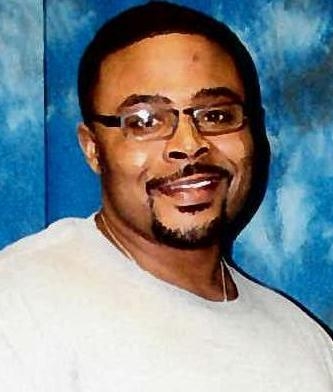A Long Road Home for Reynolds Wintersmith
Page Media

When I interned in the Chicago Federal Defenders Office in 2011, I had the opportunity to work alongside attorney MiAngel Cody. I was with her when she first received a phone call from a family friend of Reynolds Wintersmith, requesting she take a look at his case and assist in contesting the incredibly unfair prison sentence he received as a juvenile in 1994 for a non-violent crime. Mr. Wintersmith was given life without parole (LWOP), for his alleged role in selling crack and powder cocaine in Rockford, Illinois. Ms. Cody and I immediately sprung to action and began reviewing Mr. Wintersmith’s court documents, prison letters, and awards, and doing legal research on potential challenges we could raise in court. We also created a blog sharing Mr. Wintersmith’s story, and worked to spread awareness about his case, and highlight the gross disparities and inequity synonymous with the U.S. prison system. Those efforts helped amass many supporters who not only helped share Wintersmith’s story, but even started multiple petitions advocating for his release.
On Thursday, just over two years after my first interaction with Mr. Wintersmith, I received some of the most relieving and gratifying news possible from Ms. Cody. She informed me that President Obama had commuted Mr. Wintersmith’s prison sentence and that Mr. Wintersmith would be released on April 17th. Ecstatic, shocked, and filled to the brim relief, I congratulated Ms. Cody, and told her how happy I was for Mr. Wintersmith and his family, and how grateful I was for the opportunity to work alongside her in the beginning phases of his case. Mr. Wintersmith remained a good spirited member of the corrections system, despite an almost certain life sentence for a crime he committed as a youth. His determination and will to persevere despite his circumstance, was an inspiration to me, and the many supporters who hoped to help advocate on his behalf. This result was not only well deserved, but reminded me of the following quote by Martin Luther King Jr.: “the arc of the universe is long but it bends towards justice.”
While this is a great step toward addressing the draconian prison sentences too often handed down to people convicted of low-level, non-violent crimes like drug possession, and which disproportionately affects people of color, it is only one victory among the many more battles currently raging on within our criminal justice system. Disparities in incarceration are exacerbated by the well documented and unequal prison sentencing, discriminatory policing practices, and excessively punitive prosecutorial practices that provide little to no rehabilitative value to offenders and ultimately enhance the debilitating effects of disproportionate incarceration on communities of color. While some often assert that justice is being served through these systems, the families and communities from which several alleged offenders have come, and ultimately may be returned to upon release from prison, often feel otherwise.
We need more advocates, more supporters, and more public education about and educators on, the impact of extremely prejudicial practices rampant within our criminal legal system which primarily affect communities of color, and are often validated through broken punative systems that continue to disparately impact those communities. Let us continue to agitate the legal system so that we are thoughtful participants and instigators in that long and often overwhelming bending process towards justice that Dr. King spoke of.
Christopher Bridges is the Racial Justice Project Legal Fellow at the ACLU of Northern California.
